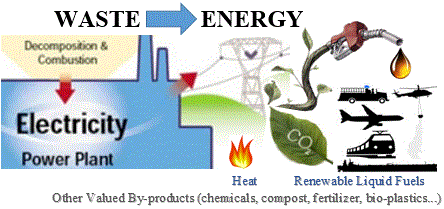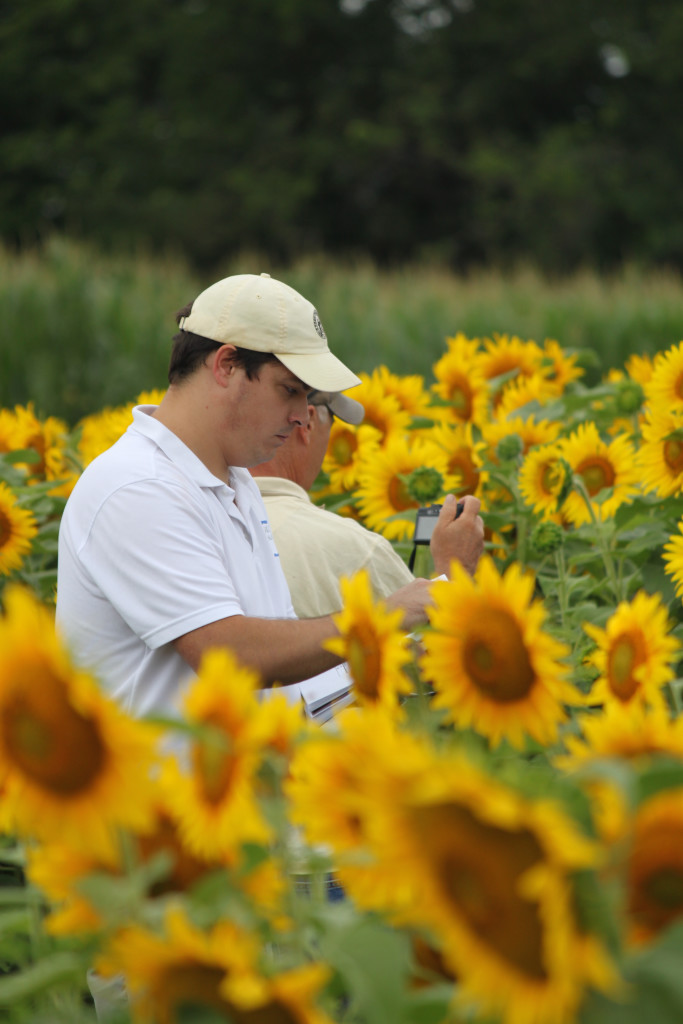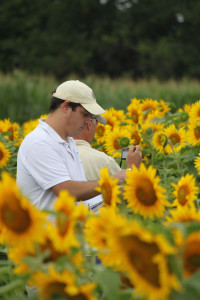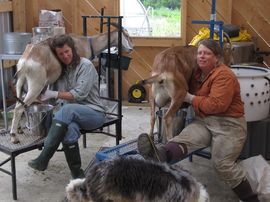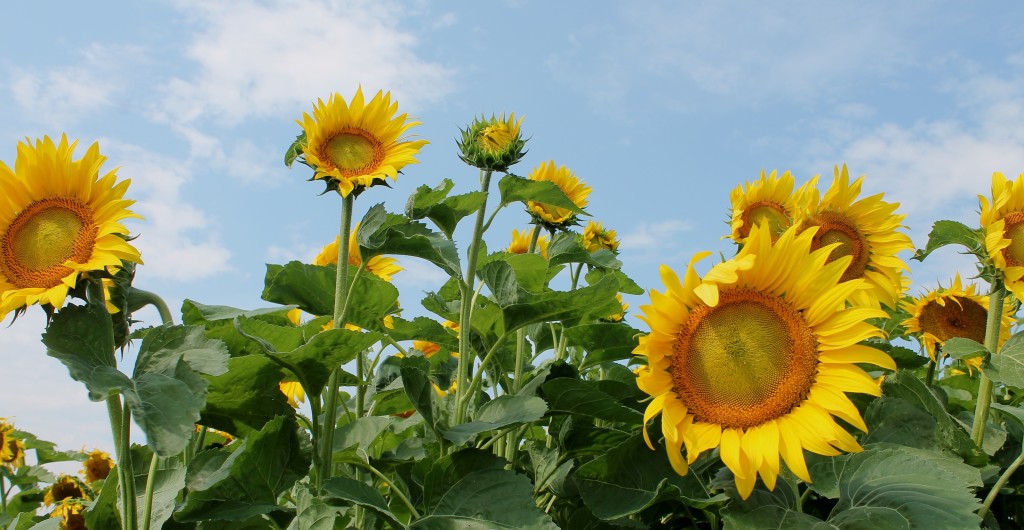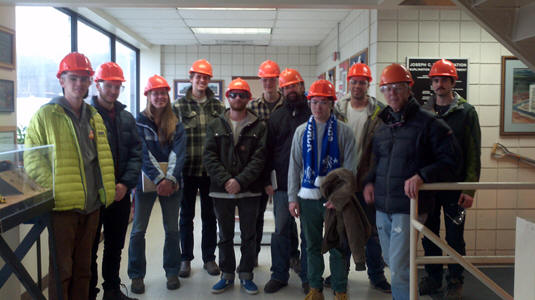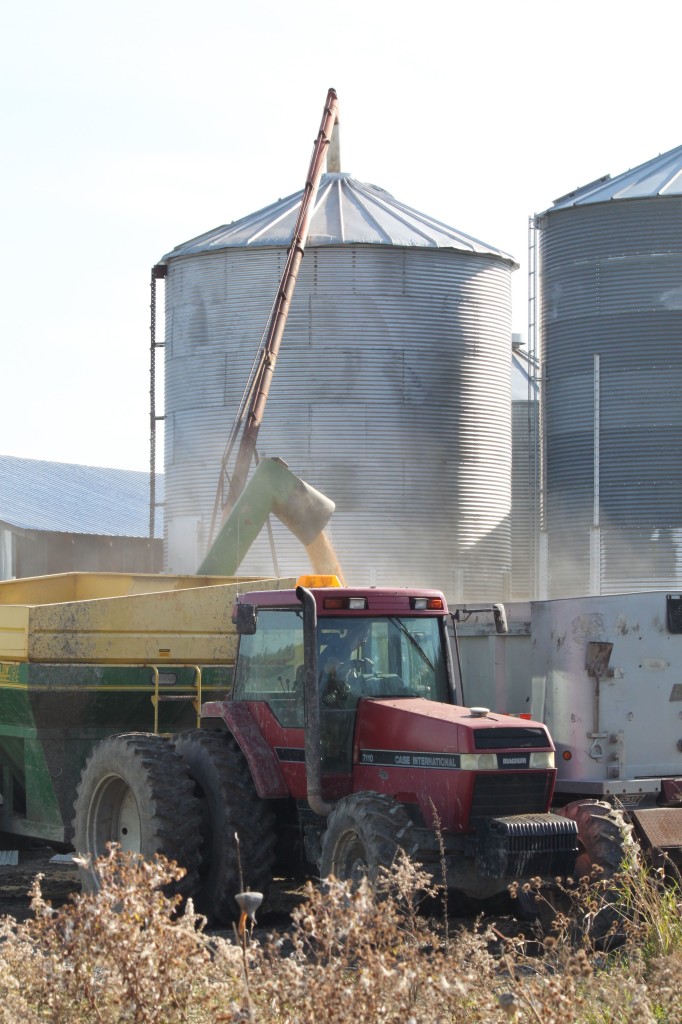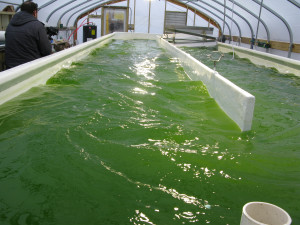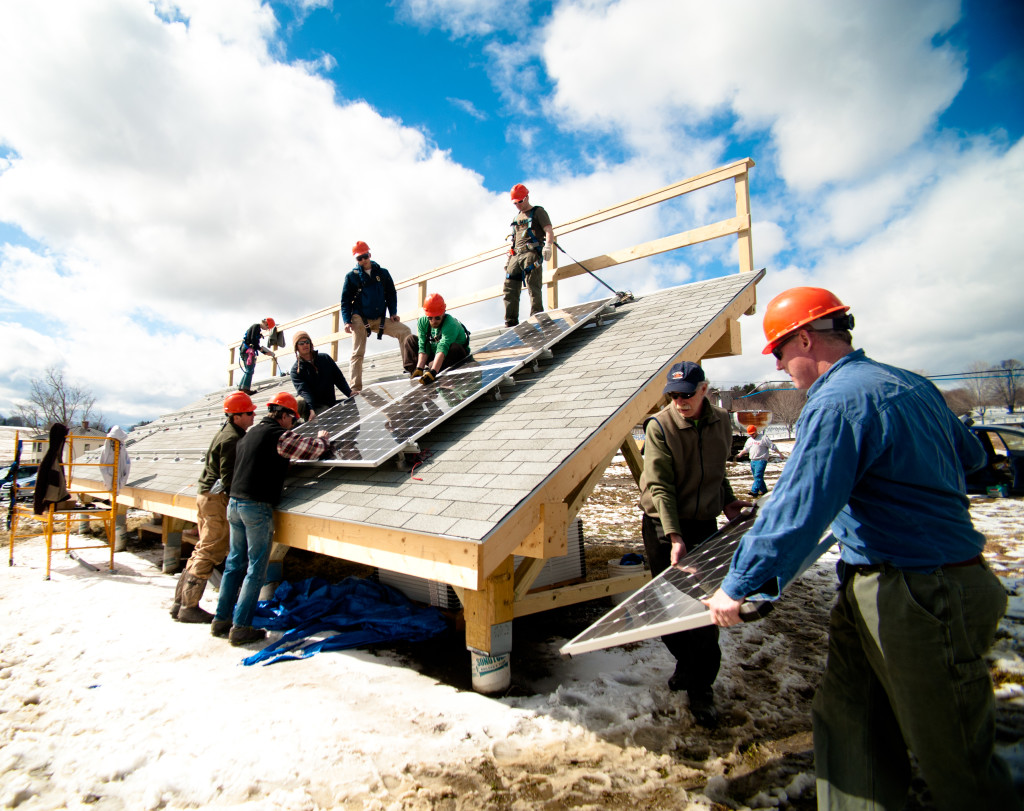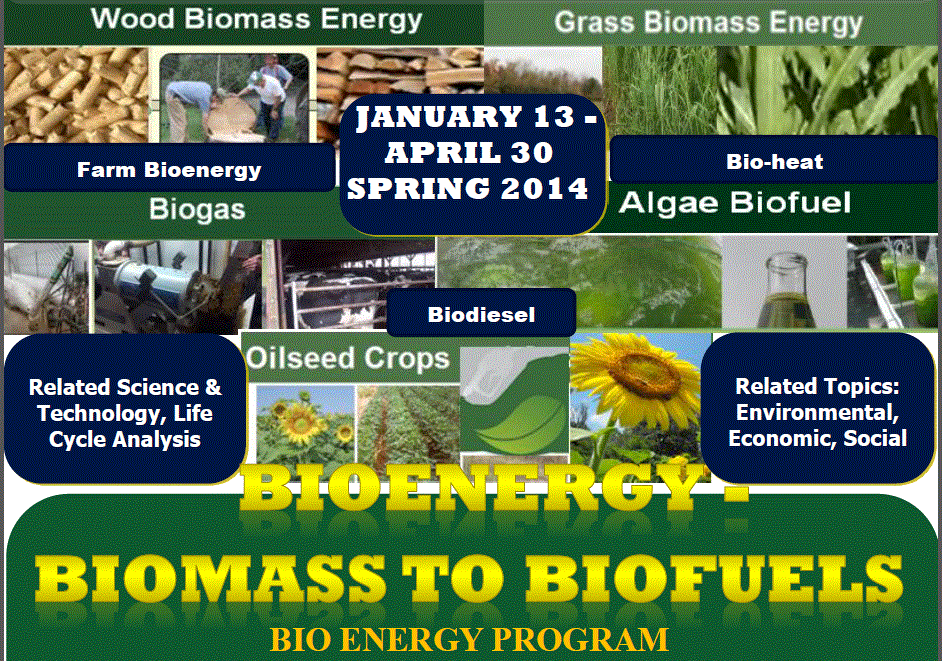![energy[1]](http://vermontbioenergy.com/wp-content/uploads/2015/12/energy1-300x141.gif) Following the Fall Semester UVM bioenergy course Bioenergy: Biomass to Biofuels, the University of Vermont will be offering a new bioenergy course this spring entitled Waste to Energy: Community Development Application. The course will again be taught by Anju Dahiya, cofounder of General Systems Research, LLC (GSR), lead biofuels instructor at the University of Vermont’s Rubenstein School of Environment and Natural Resources, and a Vermont Bioenergy Initiative algae for biofuel grant recipient. This course is open to both degree and non-degree students from any background or department, as well as farmers, entrepreneurs, and teachers interested in developing curriculum, or projects at school or college levels. This course is also approved for graduate credit.
Following the Fall Semester UVM bioenergy course Bioenergy: Biomass to Biofuels, the University of Vermont will be offering a new bioenergy course this spring entitled Waste to Energy: Community Development Application. The course will again be taught by Anju Dahiya, cofounder of General Systems Research, LLC (GSR), lead biofuels instructor at the University of Vermont’s Rubenstein School of Environment and Natural Resources, and a Vermont Bioenergy Initiative algae for biofuel grant recipient. This course is open to both degree and non-degree students from any background or department, as well as farmers, entrepreneurs, and teachers interested in developing curriculum, or projects at school or college levels. This course is also approved for graduate credit.
![food-waste[1]](http://vermontbioenergy.com/wp-content/uploads/2015/12/food-waste1-300x72.gif) In a Vermont post Act 148, the universal recycling law for solid waste, food waste, dairy farm manure, municipal wastes, landfill waste, carbon exhaust, nutrient runoff and other materials not being converted into value products are all resources that hold potential energy that can be developed in a sustainable way to power a local economy. This class focusing on waste sourced bioenergy comes on the heels of a promising results and continued work by Dahiya’s company GSR on incorporating algae into Green Mountain Power’s anaerobic digester at Nordic Farms in Shelburne, Vermont. The product serves as a strong example in which excess nitrogen and phosphorus in cow manure would find its way off farmland and end affecting health of natural water bodies, but instead is harnessed to make electricity and biofuel. As listed in the course catalog “the mission of this program is to provide hands-on instruction in all possible Bioenergy areas, support generation of related skilled workforce and stimulate sustainable energy production.”
In a Vermont post Act 148, the universal recycling law for solid waste, food waste, dairy farm manure, municipal wastes, landfill waste, carbon exhaust, nutrient runoff and other materials not being converted into value products are all resources that hold potential energy that can be developed in a sustainable way to power a local economy. This class focusing on waste sourced bioenergy comes on the heels of a promising results and continued work by Dahiya’s company GSR on incorporating algae into Green Mountain Power’s anaerobic digester at Nordic Farms in Shelburne, Vermont. The product serves as a strong example in which excess nitrogen and phosphorus in cow manure would find its way off farmland and end affecting health of natural water bodies, but instead is harnessed to make electricity and biofuel. As listed in the course catalog “the mission of this program is to provide hands-on instruction in all possible Bioenergy areas, support generation of related skilled workforce and stimulate sustainable energy production.”
![nutrients-pic-1[1]](http://vermontbioenergy.com/wp-content/uploads/2015/12/nutrients-pic-11-300x93.gif) Lectures will be held every on campus every Friday during the UVM spring semester from 12:00 pm to 3:00 pm, with 5 additionally required off campus field trips. The course required textbook, Bioenergy: Biomass to Biofuels, was edited by Anju Dahiya less than a year ago and represents a compilation of work from an extensive list of well-respected university extension programs, such as The University of Vermont Research Extension, as well as numerous national organizations including the US Department of Energy’s National Renewable Energy Laboratories.
Lectures will be held every on campus every Friday during the UVM spring semester from 12:00 pm to 3:00 pm, with 5 additionally required off campus field trips. The course required textbook, Bioenergy: Biomass to Biofuels, was edited by Anju Dahiya less than a year ago and represents a compilation of work from an extensive list of well-respected university extension programs, such as The University of Vermont Research Extension, as well as numerous national organizations including the US Department of Energy’s National Renewable Energy Laboratories.
Learn more about this course at the University of Vermont Renewable BioEnergy page or email the lead instructor Anju Dahiya at adahiya@uvm.edu.
The Vermont Bioenergy Initiative connects diversified agriculture and local renewable energy production for on-farm and community use by supporting research, technical assistance, and infrastructure development in emerging areas of bioenergy including biodiesel production and distribution for heating and transportation, oil crops for on-farm biodiesel and feed, grass for heating, and algae production for biofuels and wastewater management. Explore the initiative’s extensive and accessible set of bioenergy resources for replication in rural communities across the United States and beyond.
Video
A series of informative educational showcase a range of biofuel possibilities; from research and crop farming to feedstocks and fuel. The videos were developed by the Vermont Sustainable Jobs Fund, UVM Extension researchers, KSE Partners, and the Vermont Bioenergy Initiative grantees.
Calculators
Two calculators, developed by UVM Extension, help connect potential costs and profits associated with oilseed production:
- Grass Biomass Production and Harvest Cost Estimator
- Vermont Oilseed Crop Production Cost and Profit Calculator
Course Work
- Biomass to Biofuels, University of Vermont: This semester-long course covers liquid and solid biofuels, biogas and bio-electricity, and environmental, social and economic issue related to biofuels. The course includes guest lecturers and field days. Available for variable credits.
- Biomass to Biofuels, Vermont Technical College: The development of this course and associated materials led to an online repository of resources for the classroom covering biomass to biofuels.
- Digester Operations Master Certificate, Vermont Technical College: a twelve week program designed for participants to work directly with operations staff of Vermont Tech’s anaerobic digester and come away with understanding of the mechanics and operations of a digester system, as well as other areas such as permitting, regulatory compliance and record keeping.
- Alternative Fuel Vehicles: Biodiesel, part of the Green Trainings series at Vermont Technical College: This 2-day course covers engine systems, biodiesel blends and biodiesel production, including a demonstration of fuel-making equipment.
- Biofuels Course at Yestermorrow Design/Build School, part of the Green Trainings series at Vermont Technical College: This weekend workshop enables students to begin replacing fossil fuels with biofuels, such as adapting engines to run on straight vegetable oil. 1 credit.
Textbook
Bioenergy: Biomass to Biofuels; is an innovative new textbook that provides insight into the potential and current advances and benefits of biofuel. Contributions include an extensive list of well-respected university extension programs, such as The University of Vermont Research Extension, as well as numerous national organizations including the US Department of Energy’s National Renewable Energy Laboratories.
Reports
A variety of reports are available which cover a range of topics including seed preparation and storage:
- Institute for Energy and the Environment at Vermont Law School.Legal & Regulatory Review of On-farm Biodiesel Production. 2015.
- Chris Callahan and Netaka White,Vermont On-Farm Oilseed Enterprises: Production Capacity and Break-even Economics. July 2013.
- Nell Campbell, Local Production for Local Use to Supply a Portion of Vermont’s Energy Needs.May 2009.
- Emily J. Stebbins. Technical and Economic Feasibility of Biodiesel Production in Vermont: Evidence From a Farm-Scale Study and a Commercial-Scale Simulation Analysis. May 2009.
- Christopher W. Callahan,A Feasibility Analysis of a Mobile Unit for Processing Oilseed Crops and Producing Biodiesel in Vermont. December 2008.
- Emily Stebbins, The Market Potential of Farm-Scale Oilseed Crop Products in Vermont. February 2008. (See also the Executive Summary)
- John Williamson & Tanner Williamson – State Line Biofuels, LLP, Chris Callahan – Callahan Engineering, PLLC, Feasibility Analysis:_Solar Seed Dryer and Storage Bin at State Line Farm, Bennington, VT. October 2008
- Christopher W. Callahan, A Feasibility Study of a Mobile Unit for Processing Oilseed Crops and Producing Biodiesel in Vermont. December 2008
- Kenneth Mulder, Ph.D., Galen Wilkerson, Emily J. Stebbins.Homegrown Fuel: Economic Feasibility of Commercial-Scale Biodiesel Production in Vermont. September 2007.
- The Vermont Biodiesel Project: Building Demand in the Biofuels Sector – Final Report. October 2006. (See also theExecutive Summary)
- Vermont Department of Buildings and General Services, Vermont Biodiesel Pilot Project: Emissions Testing of Biodiesel Blends With #6 Fuel Oil At the Waterbury State Office Complex – Final Report. September 2006.
- Laboratory and Field Testing of Biodiesel in Residential Space Heating Equipment – Final Report. August 2006.
- Vermont Biodiesel Supply Chain Survey – Final Report. April 2006.
- Wilson Engineering,Grass Energy in Vermont and the Northeast, May 2014.
Technical Advice
Connect directly with the Vermont Bioenergy Initiative’s technical assistance providers:
Oilseeds for Biofuel
- Heather Darby, Agronomic and Soils Specialist
- University of Vermont Extension, Northwest Crops and Soils Team
- (802) 524-6501
- darby@uvm.edu
- Chris Callahan, PE, Agricultural Engineer
- University of Vermont Extension
- (802) 773-3349
- callahan@uvm.edu
Grass for Heating Fuel
- Sidney Bosworth, Extension Professor
- University of Vermont College of Agriculture and Life Sciences
- (802) 656-0478
- bosworth@uvm.edu
Algae for Biodiesel
- Anju Dahiya, Instructor and Principal
- University of Vermont and GSR Solutions
- (802) 310-1936
- adahiya@uvm.edu
Farms open their doors to a public interested in learning more about where food comes from and supporting the local agricultural economy
Farmers across Vermont will throw open their barn doors and garden gates to welcome the public for a behind-the-scenes look at Vermont’s vibrant working landscape. Vermont’s first Open Farm Week will be held Monday, August 3 – Sunday, August 9, 2015.
Open Farm Week is a weeklong celebration of Vermont farms. Over 100 farms are participating, many of whom are not usually open to the public. Open Farm Week offers Vermonters and visitors alike educational opportunities to learn more about local food origins, authentic agritourism experiences, and the chance to build relationships with local farmers. Activities vary and may include milking cows and goats, harvesting vegetables, collecting eggs, tasting farm fresh food, scavenger hunts, hayrides, farm dinners, and live music.
Visit DigInVT for a map of participating farms by region. Many events are free and costs vary depending on what activities are offered. Everyone is invited to join the #VTOpenFarm conversations on social media. All participating farms, geographic location, and offerings are at www.DigInVT.com.
Farmers’ markets will also be a part of the Open Farm Week celebration as organizers planned the event to coincide with National Farmers’ Market Week – also the first week of August.
The first Vermont Buy Local Market on the Statehouse Lawn will be held during Open Farm Week on Tuesday, August 4th from 10am-1pm. The Vermont Agency of Agriculture, Food and Markets is organizing the first Statehouse farmers’ market in collaboration with the Capital City Farmers’ Market and NOFA-VT.
Building off of the success of NOFA-VT’s 2014 Open CSA Farm Day, Open Farm Week is a collaborative statewide agritourism project organized by members of the Vermont Farm to Plate Network including Intervale Center, Vermont Farm Tours, Neighboring Food Co-op Association, Vermont Agency of Agriculture, Vermont Fresh Network, Vermont Department of Tourism, Shelburne Farms and Farm-based Education, NOFA-VT, and City Market. Open Farm Week helps Vermont reach its statewide Farm to Plate food system plan goals to increase farm profitability, local food availability, and consumption of Vermont food products.
Vermont Open Farm Week is made possible by the generous support of Premiere Sponsor: City Market/Onion River Coop as well as the Vermont Department of Tourism and Marketing; Vermont Agency of Agriculture, Food and Markets, Localvore Today and Woodchuck Hard Cider.
19 May 2015
Mitigating Potential Biomass Feedstock Pests
The Vermont Bioenergy Initiative aims to connect diversified agriculture and local renewable energy production for on-farm and community use by supporting research, technical assistance, and infrastructure development in emerging areas of bioenergy including biodiesel production and distribution. As we move into the growing season, there are a variety of pests that can potentially affect sunflower, canola, and soybean biomass feedstock production. In this video a University of Vermont agronomist explains how to control theses potential biomass feedstock pests and increase crop, and eventually biofuel, yields without heavy reliance on pesticides and herbicides.
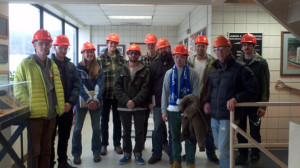 Coming this fall the University of Vermont will be offering a bioenergy course taught by Anju Dahiya, cofounder of General Systems Research, LLC, lead biofuels instructor at the University of Vermont’s Rubenstein School of Environment and Natural Resources, and Vermont Bioenergy algae for biofuel grant recipient. This course is open to both degree and non-degree students from any background or department, as well as farmers, entrepreneurs, and teachers interested in developing curriculum, or projects at school or college levels. This course is also approved for graduate credit.
Coming this fall the University of Vermont will be offering a bioenergy course taught by Anju Dahiya, cofounder of General Systems Research, LLC, lead biofuels instructor at the University of Vermont’s Rubenstein School of Environment and Natural Resources, and Vermont Bioenergy algae for biofuel grant recipient. This course is open to both degree and non-degree students from any background or department, as well as farmers, entrepreneurs, and teachers interested in developing curriculum, or projects at school or college levels. This course is also approved for graduate credit.
Potential participants are offered the option of variable credits, ranging from 0 to 6 credit hours. This allows prospective students to only attend lectures and have access to online course materials for 2 credits; further their experience with the addition of hands-on labs and field trips for 3 credits; or participate in all aspects of the class while additionally applying lessons to a service learning project with a community partner, earning 4 credits. Participants have the ability to add up to 2 more credits, totaling no more than 6, for additional work with the community partner pending special permission from the course instructor.
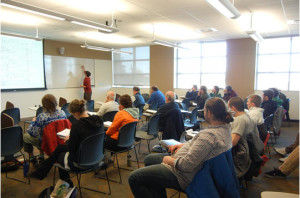 Lectures will be held twice a week between September 18th and December 9th of 2015. Friday lectures will be on campus from 4:05 pm to 7:05 pm, followed by Saturday morning field trips between 10:00 am and 1:00 pm for those students who elected for 3 credits or more. The course required textbook, Bioenergy: Biomass to Biofuels, was edited by Anju Dahiya less than a year ago and represents a compilation of work from an extensive list of well-respected university extension programs, such as The University of Vermont Research Extension, as well as numerous national organizations including the US Department of Energy’s National Renewable Energy Laboratories.
Lectures will be held twice a week between September 18th and December 9th of 2015. Friday lectures will be on campus from 4:05 pm to 7:05 pm, followed by Saturday morning field trips between 10:00 am and 1:00 pm for those students who elected for 3 credits or more. The course required textbook, Bioenergy: Biomass to Biofuels, was edited by Anju Dahiya less than a year ago and represents a compilation of work from an extensive list of well-respected university extension programs, such as The University of Vermont Research Extension, as well as numerous national organizations including the US Department of Energy’s National Renewable Energy Laboratories.
Learn more about this course at the University of Vermont Renewable BioEnergy page or email the lead instructor Anju Dahiya at adahiya@uvm.edu.
06 Apr 2015
Upcoming North American Bioenergy Events
Make sure to check on the Vermont Bioenergy Initiative website for more national bioenergy events as we will be updating this list!
- May
- June
- WasteExpo 2015 June 1-5, 2015 Las Vegas Convention Center
- 5th International Conference on Algal Biomass, Biofuels and Bioproducts. 7 – 10 June 2015. San Diego, USA
- BIO International Convention June 15-18, 2015. Philadelphia, PA
- Bioenergy 2015,June 23-25. Washington, DC
- GAI AgTech Week June 22-24, 2015 San Francisco, CA
- July
- 19th Annual Green Chemistry & Engineering Conference (GC&E). July 14-16, 2015. N. Bethesda, MD
- BIO World Congress on Industrial Biotechnology. July 19 – 22, 2015. Montreal, Canada
- EnergyPath 2015, July 20-24. Scranton, PA
- BioFuelNet Advanced Biofuels Symposium 2015. July 22 – 24, 2015. Montreal, Canada
- August
- September
- Switchgrass III. September 30 to October 2, 2015. Knoxville, TN
- 2nd International Conference on Past and Present Research Systems of Green Chemistry. September 14-16, 2015. Orlando, Florida
- Ag Innovation Showcase September 14-16, 2015 St. Louis, MO
- Algae Biomass Summit September 30-October 2, 2015 Washington, DC
- October
- November
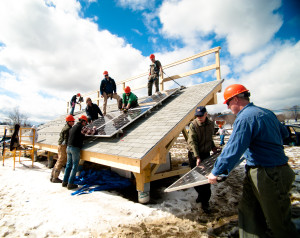 Vermont Technical College is committed to educating students as the workforce to support renewable energy systems and infrastructure development in Vermont. A number of technical “green trainings” are being offered in the coming months ranging from solar PV, solar hot water, waste water, OSHA standards, and wetland delineation.
Vermont Technical College is committed to educating students as the workforce to support renewable energy systems and infrastructure development in Vermont. A number of technical “green trainings” are being offered in the coming months ranging from solar PV, solar hot water, waste water, OSHA standards, and wetland delineation.
Vermont Tech is offering introductory and advanced classes that serve as a great opportunity for individuals to enter the growing field of solar installation and for the existing workforce to advance their skill set. By successfully passing the NABCEP Entry Level exam, students at an introductory level will demonstrate the basic knowledge necessary to apply the fundamental application principles, design installation, and operation of grid-tied and stand-alone PV Systems. Renewable Energy Vermont (REV) recently approved this 40-hour training to qualify any individual for Provisional Partnership, regardless of their status of an electrical license.
For the more advanced PV installer, an upcoming one day course on April 15th will provide continuing education for the Electrical S license in solar technology. Taught by Dan Kiney, in compliance with the Vermont State Electrical Board, this class has been approved by the VT State Electrical Board for 8 S License Continuing Education Hours.
The 16 hour Introduction to Solar Hot Water being held May 2-3 has been approved for licensed plumbers by REV for Provisional Solar Hot Water Partnership and only requires a basic knowledge of electrical systems.
Additionally, a BPI Dual Certificate Training scheduled for June 1-5 will focus on the building sciences related to physics and control strategies for air, heat, and moisture and will prepare students to test for their Building Analyst and Envelope Professional Certifications.
Learn more about these and other Vermont Tech Continuing Education & Workforce Development Green Trainings.
16 Feb 2015
Upcoming Farm Energy IQ Training

It’s not too late to register for the upcoming Farm Energy IQ Training for New England Agricultural Service Providers. This training will take place starting Monday, February 23rd at 8:00 a.m. and will end Wednesday February 25 in Fairlee, Vermont. Organized by individuals from the University of Vermont Extension Service, Penn State, and Rutgers University, this three day training is a great opportunity for those interested in on farm energy to learn and apply their skills as well as network with other attendees. The Farm IQ Energy Training is funded generously by Northeast Sustainable Agriculture Research and Education (SARE) Program as part of a regional professional development program to bring the latest developments in the field to individuals who can best apply them.
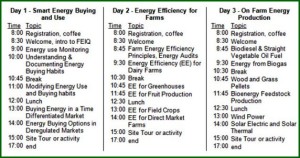
This conference will provide a range of opportunities to learn or improve energy purchasing, calculating, conservation, production, and analysis.Attendees will even have the opportunity to apply skills via hands-on activities and by visiting local operations. Over the three days these lessons will be compared for application on farms in different settings. In addition, attendees will receive a comprehensive binder with all the material covered in the workshops as well as supplemental materials to refresh and share material as well as continue learning.
This conference is a great opportunity to solidify one’s knowledge by learning from on hand specialist and being immersed with in the material. If you happen to miss this particular training, the same workshop will be offered in Pennsylvania, March 10th to the 12th and again in New Jersey from April 8th to the 10th.
Read more about renewable energy events around the country on the Vermont Bioenergy Field Notes blog
January 13, 2014 to April 30, 2014
Thursday & Fridays 9:00AM – 12:00PM (no classes during the regular breaks/holidays, plus 2 weeks self-study for the course project; final exam in May)
Location: UVM campus & throughout Vermont for field trips/hands on experience
Details/Course Website: 4 Credit through ENSC, NR & TRC (3 & 2 credits only through ENSC) http://go.uvm.edu/7y1rr
CERTIFICATE OF ACHIEVEMENT: awarded for successfully completing the 4 credits.
DETAILS: Experts in following areas will provide hands-on instruction in a wide range of topics including:
- LIQUID BIOFUELS (seed-based biodiesel; bioethanol; conversion of waste oil to biodiesel; and advanced biofuels including algae-biofuel & microbial biofuel)
- SOLID BIOFUELS (wood & grass energy, pelletization)
- BIOGAS & BIO-ELECTRICITY (the farm-based energy)
- BIOHEAT, BIOMASS CONVERSION TECHNOLOGIES FOR BIOFUEL, BIOFUELS/ENERGY RELATED ENVIRONMENTAL, ECONOMICS, & SOCIAL ISSUES
- OTHER wide-range of Biofuels related science & technology topics, background & literature
Topics & Experts: http://go.uvm.edu/eg1bx.
This course is designed to provide hands-on experience in all possible Bio-Renewable Energy areas to prepare participants from diverse backgrounds for jobs in the BioEnergy / Biofuels industry, or higher education in the field, or related entrepreneurial endeavors in bioenergy / biofuels areas.
CONTACTS: For syllabus related questions contact the Lead Instructor, Anju Dahiya, at adahiya@uvm.edu To register, email http://learn.uvm.edu/contact/ ) or call 800-639-3210. To make a phone or in-person appointment with a Continuing Education Advisor to discuss your options, call 802-656-2085.
INSTRUCTORS: UVM FACULTY MEMBERS and EXPERTS from VT-based Biomass/biofuels businesses (see a list on the course website).
PARTICIPANTS/STUDENTS
All welcome: Degree and non-degree seeking students, budding entrepreneurs, teachers (interested in developing curriculum or projects at school or college levels), farmers, and others.
MEANS OF INSTRUCTION
- ON CAMPUS CLASSES: BY UVM FACULTY MEMBERS and EXPERTS from VT-based biofuels businesses
- HANDS-ON FIELD WORK & SERVICE LEARNING PROJECTS involving tours to Farms/Biofuel facilities & related projects. Check out past SL projects at: http://go.uvm.edu/xa20i
- TALKS by guest-speakers/experts from businesses
- BIOFUELS EQUIPMENT DEMONSTRATIONS by professionals
- ONLINE CLASSES: supplementary classes/information including video clips and discussions
Three course listings to register from:
http://learn.uvm.edu/courselistspring/course.php?term=201401&crn=12170
http://learn.uvm.edu/courselistspring/course.php?term=201401&crn=12075
http://learn.uvm.edu/courselistspring/course.php?term=201401&crn=14731
MEET FORMER STUDENTS: http://go.uvm.edu/2xgs8




